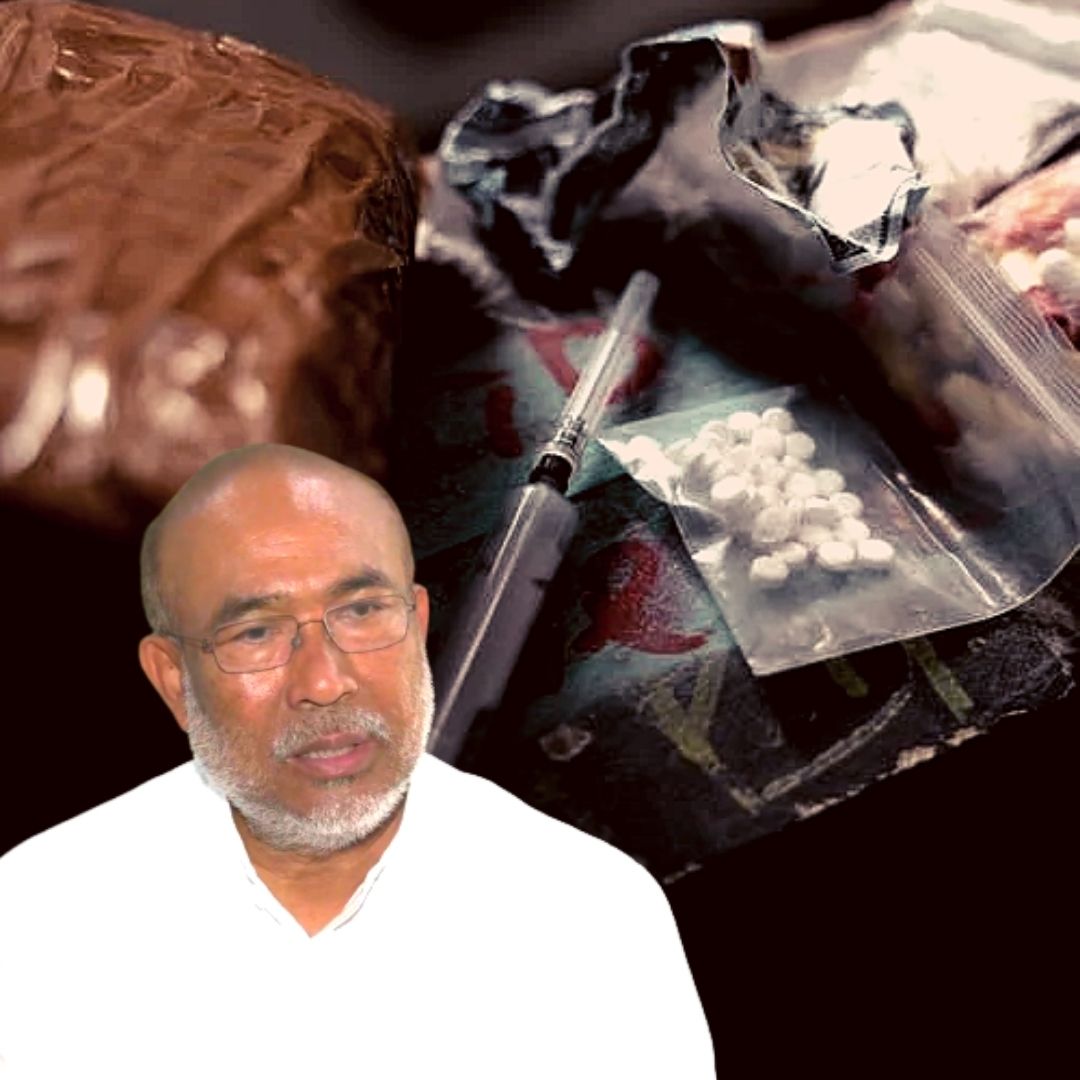'War On Drugs': Manipur's Four Tribes Announce Support Towards Govt Campaign Against Substance Use
Writer: Mrinalini Kaushik
She is a student of journalism, keen on learning new ways to unlearn, deconstructing news and life. Interested in exploring new media as medium is the message. Avid follower of sports and politics
Manipur, 14 May 2022 4:30 AM GMT | Updated 14 May 2022 4:30 AM GMT
Editor : Shiva Chaudhary |
A post-graduate in Journalism and Mass Communication with relevant skills, specialising in content editing & writing. I believe in the precise dissemination of information based on facts to the public.
Creatives : Shiva Chaudhary
A post-graduate in Journalism and Mass Communication with relevant skills, specialising in content editing & writing. I believe in the precise dissemination of information based on facts to the public.
Since his campaigning days, CM Biren Singh has tried to appeal to all those engaged in drug-related activities to cease so that Manipur's resources and energy can be utilised for positive growth.
The Joint Tribe Council (JTC) and Joint Tribe Students' Association representing the Inpui, Liangmai, Zeme, and Rongmei tribes of Manipur, promulgated a declaration to Chief Minister Biren Singh, acceding to aiding the 'War On Drugs' Campaign on May 12.
The declaration claims that the four indigenous tribes residing in Manipur have neither performed poppy cultivation nor solicited any illegal trade in drugs.
The Joint Tribes Organisations have further committed to working on conserving flora and fauna of the rich bio-diverse forests.
Drugs Jeopardising Growth
After getting elected in 2018, CM Singh declared the 'War on Drugs' as his primary focus. As its part, he emphasised the detrimental effects poppy cultivation (poppy makes heroin drug) has on the ecology in the form of degradation of soil quality, fertility of the land, polluting water bodies, and deforestation.
Since his campaigning days, Singh has tried to appeal to all those engaged in drug-related activities to cease so that Manipur's resources and energy can be utilised for positive growth, as reported by the Northeast Now.
History Of Drug Use In Manipur
Manipur lies close to Laos, Myanmar, and Thailand, considered the Golden Triangle of drug trade among South-East Asian countries. Drugs have become a part of the Manipuri population's rituals and customs due to such easy access and availability. Thus, many communities in Manipur have resisted letting go of using substances. 'Ganja' has been a part of their cultural practices for a long time, and it is also extensively used as medicine for childbirth.
A report by the Manipur Narcotics and Affairs of Border unit reveals that "963 drug traffickers were detained, consisting 768 men and 195 women under the Narcotic Drugs and Psychotropic Substances (NDPS) Act from April to June 2019."
Furthermore, the report described that approximately 3,716 acres of land used in illegal poppy farming as well as 5.51 acres of cannabis were destroyed during the 'War on Drugs'.
Turning Over A New Leaf
The State Government also started the 'Nisha Thadoklasi' campaign on June 26, 2018, observing the 'International Day against Drug Abuse and Illicit Trafficking.' It also aims to make 80 schools a 'Drug-Free Campus' for which faculty and students will be properly trained.
The Government wants to fully concretise its 'Manipur State Drug Policy', which would eradicate the drug problem in the state.
There are various civil society and non-governmental organisations actively working against drug use in the state, such as All Lilong Anti-Drug Association, Coalition Against Drugs and Alcohol, etc.
Also Read: Making Education Accessible!Army To Provide Coaching To Underprivileged Students For All-India Exams
 All section
All section














